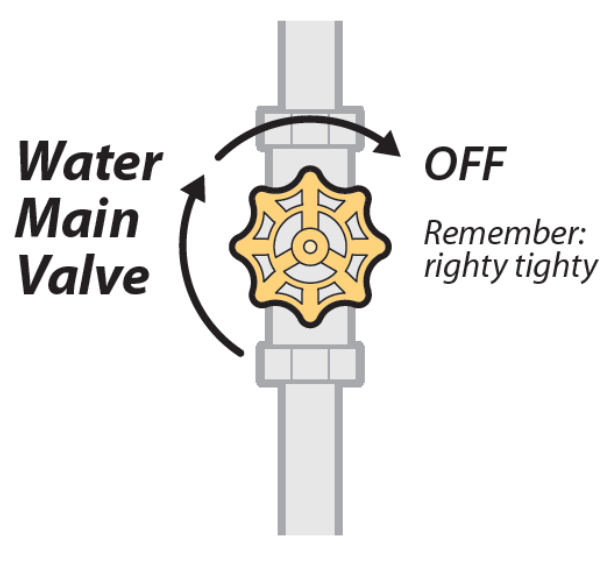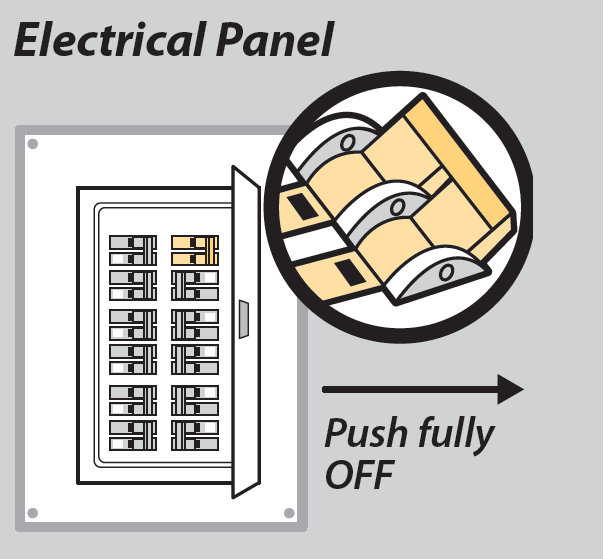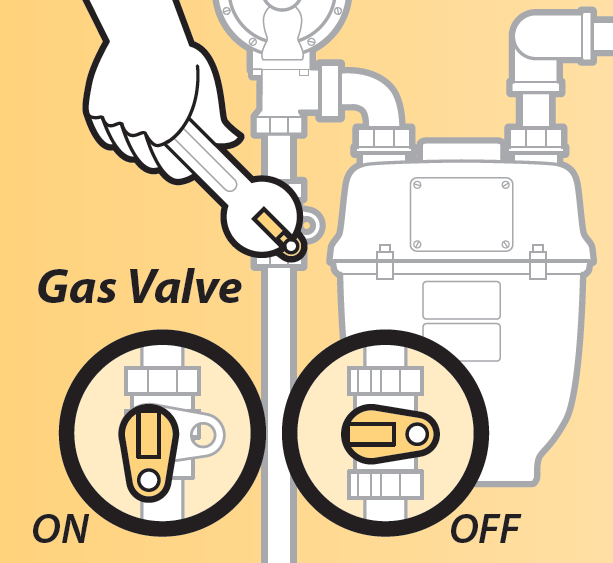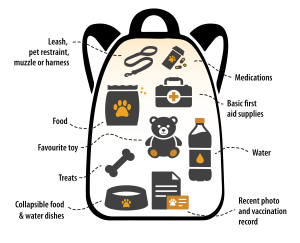Make your emergency plan

An emergency plan says how you and the people you live with will respond to a disaster. Knowing what to do, where to go and who to contact will reduce stress and help keep you focused and safe.
Make your plan
Make your plan using the interactive Emergency Ready plan or the fill-in-the-blanks home emergency plan (PDF, 910KB). Think about the things you need every day and consider what you would do if you didn't have them.
As part of your plan, create a profile for Emergency Support Services (ESS). If you are evacuated during an emergency event, ESS can provide basic supports like accommodation, food, clothing and other temporary supports.
Communication plan
Make a master contact list of friends, family, neighbours, employees (if any), and make sure everyone has a copy. The list should include at least one out-of-area contact in case local phone and mobile networks are overwhelmed. Ideally, choose someone who lives outside of B.C. and wouldn’t be affected by a major event, such as an earthquake.
Pick a meeting place or a secondary location, such as a community centre, in case you have to leave your current location due to an emergency.
Where to get information
Contact your community’s emergency management program to find out how it will share alerts and instructions during an emergency, whether it’s by social media, sirens, radio or television. The most important thing is to seek out credible sources so you can make good decisions during a disaster.
We recommend these sources:
- @EmergencyInfoBC on X, @EmergencyInfoBC on Facebook, or EmergencyInfoBC.ca for alerts
- @BCGovFireInfo on X or BCwildfire.ca for wildfire updates
- @DriveBC on X or DriveBC.ca for road conditions
Research insurance options
Whether you rent or own a property, insurance is available to help you rebuild and to replace your belongings after a loss. Learn more about insurance coverage in B.C. and how it can help you prepare.
Check with your insurance representative to determine what insurance is available for your property. You can also contact the Insurance Bureau of Canada at 1-844-227-5422 for information regarding home insurance.
Add your insurance information to your emergency plan to ensure it’s handy when you need it.
How to turn off utilities
Know how to turn off your main utilities – water, electricity, gas. In certain emergencies, authorities will ask that these be turned off for safety reasons. Write out instructions, if needed, and post somewhere visible.
Important: Don't shut off your natural gas when you receive an Evacuation Order. Your natural gas service may be turned off by your provider as a precautionary measure at the request of emergency officials. If your gas is shut off at the meter, DON’T try to turn it back on. Only a licensed gas contractor can do that safely.



Specific guides
Use the information from the guides below to help prepare your home, neighbourhood or business.
Half of all British Columbians live in some form of multi-unit housing, such as apartments, condos or townhomes. Our guide for apartments and condos considers preparing as part of a complex. It also has advice for working together. Our neighbours will be important allies during an emergency. Strengthening relationships with them today will mean a faster response and quicker recovery.
Additional considerations:
- Talk to your landlord, building manager, or strata corporation and encourage them to create a complex-wide plan. You should also download and complete our fill-in-the-blanks Home Emergency Plan.
- Reach out to your neighbours by organizing a get-together to identify a few preparedness champions and present your preparedness ideas. The get-together will also help you identify residents who may have unique needs and could use extra help in the event of an emergency.
- If you live in a building or complex that is run by a strata corporation or organizes around a resident’s association, use their meeting times to talk about preparedness. Read more about handling emergencies in strata corporations.
- When storing your emergency kit, storage space can be tight in apartments and condos. Consider discussing with your neighbours a central storage space for communal emergency items like water and blankets. Talk to your neighbours and strata about investing in a large water tank to save space in units.
Download the guides
During a disaster, phone, gas and essential services may be disrupted. Stores and gas stations could be closed and roads blocked. You might have to manage on your own for several days or weeks. Use our Household Preparedness Guide to help complete your emergency plan, build an emergency kit and prepare grab-and-go-bags in case you have to leave.
Additional considerations:
- If you have young children, identify people who could pick them up in the event you can’t, ideally someone who’s home during the day and within walking distance to where your child will be. Notify the school or daycare of who’s authorized to pick-up your children and make sure your kids know as well.
- Medical records may be difficult to access during a disaster. If you rely on a prescription, talk to your primary care provider about how to keep an extra supply or valid prescription in your emergency kit and grab-and-go bags.
- If you have a pet, ensure they’re part of your preparations. Check out our Prepare for your Pets guide for more information.
- Consider special needs when preparing your emergency kit:
- If you rely on a motorized wheelchair, have a manual back-up one.
- If you use hearing aids, stock extra batteries.
- If you have difficulty communicating verbally, have a writing pad and pencils.
Download the guides
When disaster strikes, the most immediate help will come from those around you - your neighbours. Connecting and building relationships with them today will mean a better response and faster recovery.
Use this guide as an icebreaker and reach out to your neighbours by organizing a get-together, such as a BBQ or a potluck. If you already have a neighbourhood network in place — a Block Watch group, residents’ association, or strata council — start there. Consider talking about the possible dangers in your area, how prepared your home is, any neighbours who have specific needs, and the emergency programs in your area.
Assign responsibilities to your neighbours, as it can be difficult to think clearly during and immediately after a disaster. Responsibilities can include checking on others to make sure they’re okay, gathering information, and fixing and cleaning up.
Download the guides
Older adults may need to think about preparedness actions above and beyond the “basics”. Extra considerations include:
- If you rely on a prescription, talk to your primary care provider about how to keep an extra supply or valid prescription in your emergency kit or grab-and-go bag
- A whistle or personal alarm to call for help
- Written instructions for special medical or mobility equipment
- Extra eye glasses, hearing aids and hearing aid batteries
- Spare footwear with any special orthotics
Most importantly, take time to create a trusted support network of at least three people to assist during an emergency. Give them keys to your home and add their contact information to a shared emergency plan. You should also advise members of your support network of any health conditions or medications, and show them how to operate specialized medical or mobility equipment.
Additional Resources
- Ready.gov: Preparedness information for older adults
- Canadian Red Cross: Emergency preparedness for older adults
- Emergency Ready Planner
Having a disability means you likely need to take preparedness actions above and beyond the “basics”. Some extra considerations are:
- Your ability to communicate may be restricted
- Your surroundings may change and look unfamiliar
- Your service animal or guide dog may be hurt or frightened
- Your health may be impacted by stress or confusion
Most importantly, take time to create a trusted support network of at least three people to assist during an emergency. Give them keys to your home and add their contact information to a shared emergency plan. You should also advise members of your support network of any health conditions or medications, and show them how to operate specialized medical or mobility equipment.
Make a health information card for yourself. Your health information card should include the following information:
- Name/Address/Phone Number
- Blood Type
- Conditions and/or disability
- Medications (prescriptions, dosage, times taken, etc.)
- Equipment you use (communication, mobility devices)
- Where your equipment is kept
- Allergies and sensitivities
- The best way(s) to communicate with you
- Assistance you will need (be specific)
Keep a copy of your health information card at your work, in your wallet or purse, and at home. This card will provide first responders/rescuers with information they need to know if you are unconscious or incoherent, or if they need to quickly evacuate you.
Advocate for yourself during a disaster. Practice how to quickly explain to people the best way to safely guide or move you or your equipment.
Plan for your personal emergency needs using the five categories of the C-MIST (communication, medical, independence, supervision, and transportation) framework recommended by Disability Alliance BC.
Download the guides
Pets are an important part of the family. During an emergency, they will be relying on you. Get prepared by completing your home emergency plan and pet emergency plan. Make sure you have everything you need for your pet(s) in your emergency kit. Each pet should also have their own grab-and-go bag,
You might need extra supplies based on what type of pet you have:
- Cats - You’ll need a small container of cat litter, a litter scoop and plastic bags
- Dogs - You’ll need a roll of poop bags
- Bunnies or other cage pets - You'll need shavings for bedding and a hiding box
- Reptiles - You may need a portable battery-operated heat lamp
- Birds - You might need cuttlebone and grit
Give your neighbour or a trusted friend a key to your home so they can get your pet if you're not home during an emergency. Tell them any likely hiding spots and where your pet’s grab-and-go bag is located.
Animals can become disoriented, frightened or aggressive in emergencies. Practicing your home emergency plan helps everyone you live with, including your pet, know what to expect before, during and after an emergency.
If you use a kennel or daycare, find out what their emergency plan is.
Additional resources
Talk to your First Nation or local government to find out what organizations and resources are available in your area for animals during an emergency.
Register your pet with BCPetRegistry.ca. Remember to update your pet’s information if you move or your information changes.
The Canadian Disaster Animal Response Team (CDART) has more information, checklists and videos to help you prepare your pet for an emergency.
Information and support for evacuees with pets is available through the BC SPCA Helpline 1-855-622-7722 or spca.bc.ca.
For information about emergency preparedness with large animals and livestock explore emergency management for agriculture and Horse Council of BC.
Download the guides
If you are a small business owner, you have likely invested a significant amount of time, energy and money in your operation. Depending on its size, you may have employees who rely on it for income and stability.
Additional considerations:
- If you have a business with a physical address (bricks and mortar), complete a hazard hunt. Identify and secure things that could fall during an earthquake and keep important documents and equipment off the floor that could be damaged by flooding.
- Consider purchasing a backup power source for use in a power failure and reinforcing or moving equipment that could fail because of a hazard occurring.
- Be sure to consider man-made risks as part of your planning, such as IT failures and cyberattacks. Protect your data on business computers. Perform regular backups and store critical information offsite on USB sticks, in cloud storage, or as printed copies. It is always a good idea to use anti-virus software.
- Share the elements of your Business Emergency Plan with your employees and co-workers. Better yet, involve them in the planning process! Provide training on what each person’s role and responsibility will be in an emergency.
Protect your investment and those who depend on it by using our Small Business Guide and Small Business Emergency Plan.
Download the guides
British Columbia is a world-class tourism destination with rolling ranch lands, snow-crested mountains and a sweeping coastline. Yet with that natural splendor comes some potential risk to visitors who may not be familiar with B.C.'s hazards, such as earthquakes, tsunamis, floods, and wildfires.
Additional considerations:
- Ensure staff knows how to help guests with special needs, including older adults, children, and people with disabilities.
- Communicate where the exits are located, including ramps and wheelchair accessible areas.
- Have ongoing conversations about preparedness with staff. Make preparedness the subject of newsletters, email correspondence, or other internal communications.
- Consider hosting preparedness evenings and invite your local expert to give a presentation.
Use our Guide for Tourism Operators and Tourism Operator Emergency Plan to help ensure the safety of guests.
Download the guides
